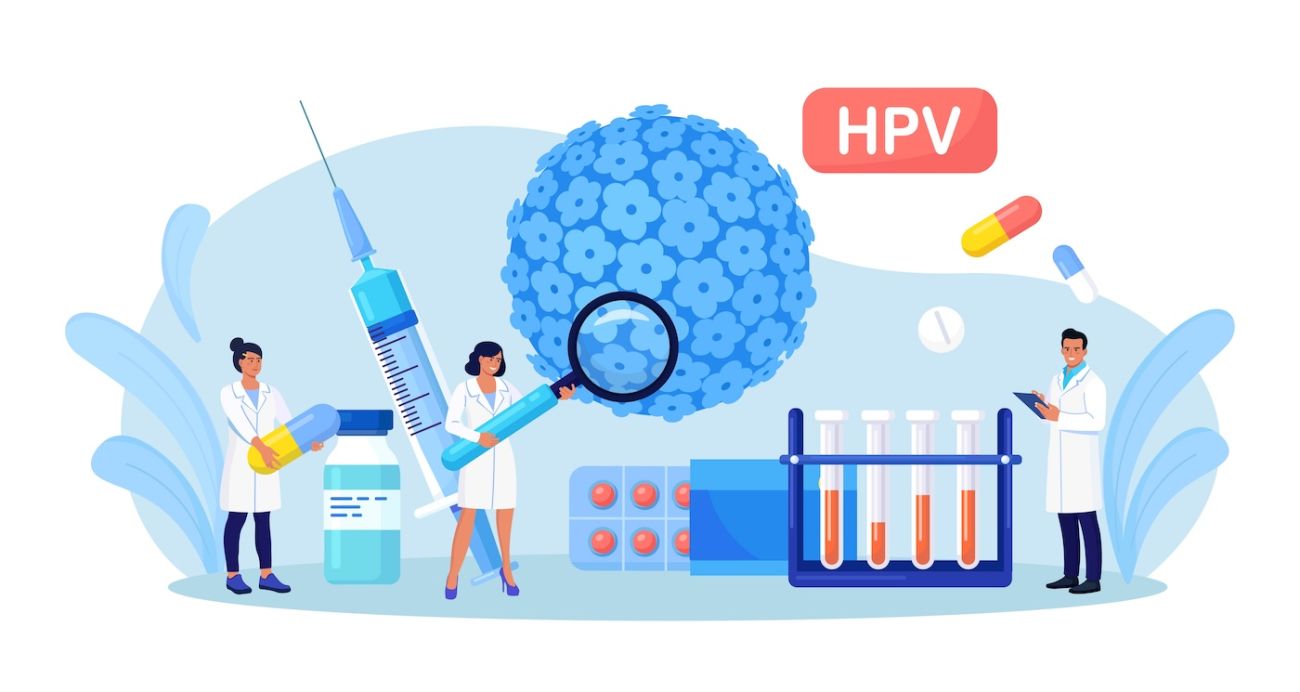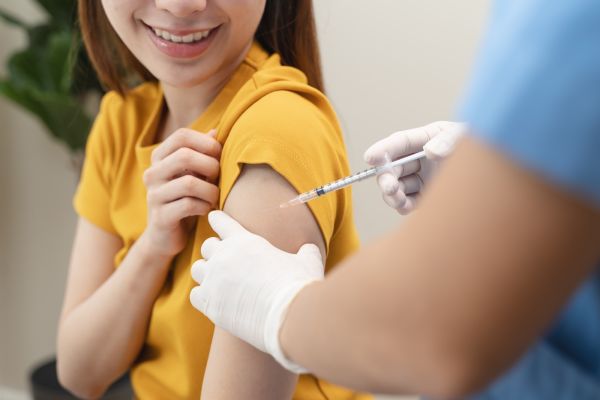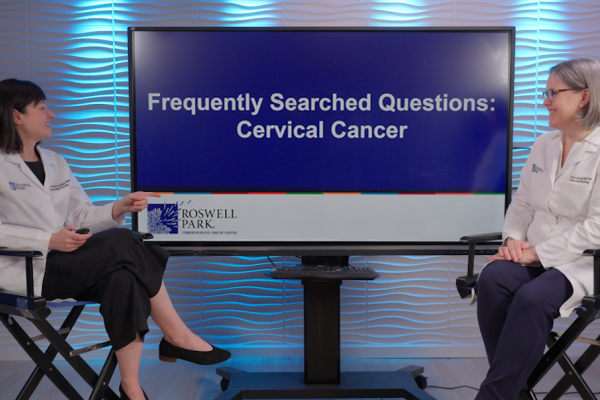More than 95% of cervical cancers stem from infection with the human papillomavirus (HPV).
HPV is the most common sexually transmitted infection in the United States, with more than 200 known strains. While most of these strains are harmless, around 40 are considered high risk, and can cause serious health issues — including 95% of cervical cancers.
Vaccine to prevent HPV prevents many cancers
The good news: the HPV vaccine, first introduced in the United States in 2006, offers highly effective protection, especially when given before potential exposure to the virus. A recent study of nearly 3.5 million people found that HPV vaccination significantly lowers the risk of developing cancers caused by the virus. When administered before a person’s first sexual encounter, the vaccine can prevent up to 99% of genital warts and HPV-related cancers.
“The HPV vaccine was and still is a huge game changer for the prevention of cervical cancer, the third most common gynecological cancer in this country,” says gynecologic oncologist Nicole Gaulin, MD, of Roswell Park Comprehensive Cancer Center, who also sees patients at the Lockport and Southtowns locations of Roswell Park’s Care Network that spans Western and Upstate New York.
Dr. Gaulin’s advice to patients is to reduce risk, starting as early as age nine. “Most people will be exposed to HPV at some point in their life,” she explains. “We don't treat HPV directly because in many cases, a healthy immune system will clear the virus without lasting effects. But women with weakened immune systems, those who smoke, or older individuals may have more difficulty fighting the virus, increasing their risk for cervical, vaginal, and vulvar cancers, and having the HPV vaccine is their first line of defense.”
HPV affects females and males
The virus can also lead to anal, penile, oropharyngeal (back of the throat), head and neck cancers, and genital and laryngeal (throat) warts, making it an important vaccine for all genders. While stigma around the HPV vaccine still exists, Dr. Gaulin compares its use to the series of vaccines given to infants and young children to protect them from diseases such as hepatitis A and B, polio, measles, mumps, rubella and chickenpox.
"The HPV vaccine doesn't promote promiscuity, but it continues to be a major hang up for many parents," Dr. Gaulin says. "If we can move past this psychological barrier, we have a profound opportunity to use modern medicine that results in a 90% decrease of HPV incidence, which translates to a significant risk reduction for cervical cancer.”
Why choose Roswell Park for cervical cancer care?
If you have a suspicion of cervical cancer, you need to be where the experts are in gynecologic oncology.
Early vaccination offers practical advantages
Scheduling vaccines at younger ages provides parents more flexibility in timing, resulting in better completion rates of the vaccination series, which requires two to three doses depending on the age at first vaccination. Additionally, vaccinating children before they become sexually active may make it easier for some parents to discuss treatment with their children. While vaccinations given before age 26 are most beneficial, people who have not received the vaccine will still benefit from its protection up to age 45.
With HPV being the leading cause of cervical cancer, it’s time to drop the stigma and focus on prevention, says Dr. Gaulin. “Women who are done having children, or are postmenopausal still have a vulva, a vagina, a cervix, uterus, ovaries, and fallopian tubes, so an annual exam is always recommended. We also recommend regular pap testing, typically up to age 65.”
Cervical cancer warning signs
Cervical cancer occasionally doesn’t present symptoms in its early stages, making routine screening essential. Dr. Gaulin advises women pay attention to early warning signs including:
- Unusual vaginal bleeding during or after sex
- Bleeding between periods or after menopause
- Abnormal vaginal discharge
- Pain during intercourse
“Warning signs need to be taken seriously and patients should feel empowered to contact their doctors at the early stage of symptoms. Even a small amount of bleeding or pain after menopause is not normal and should be investigated. It may be benign, it may not be cancer, but it still needs to be investigated.”
Promising treatment advancements
Medical advances continue to improve outcomes. Recent trial studies and treatments, including low-dose chemotherapy used with radiation and immunotherapy are showing up to 30% reduction in cervical cancer deaths. Newer, minimally invasive surgeries are also improving outcomes, especially for early-stage cervical cancer, another reason to maintain annual check-ups.
Personalized care, close to home
“Globally, there’s a lot of work to improve accessibility for patients who need to travel distances to see doctors in low- and middle-income countries, often resulting in advanced stages of disease that could have been caught and treated earlier,” says Dr. Gaulin. “At Roswell Park, we have the advantage of our expanding Care Network which makes it possible for many patients to access our comprehensive cancer services, treatments and clinical trials closer to their homes. Having the resources of next-generation sequencing to identify patients’ unique genetic profiles, pioneering research, and advanced treatments helps us care for each patient as a unique individual.” Every patient is part of their decision-making process.
“We have a dedicated, multidisciplinary team of cancer experts behind every patient case,” says Dr. Gaulin. “We don’t just treat cancer, but the whole patient and there's always a choice in treatment. I make a conscious effort to include my patients every step of the way. Ultimately, I present options and recommendations and we make a decision together.”
Cancer care closer to you
See where you can access world-class care in gynecologic cancers near you.




